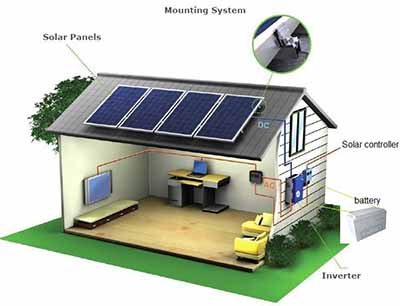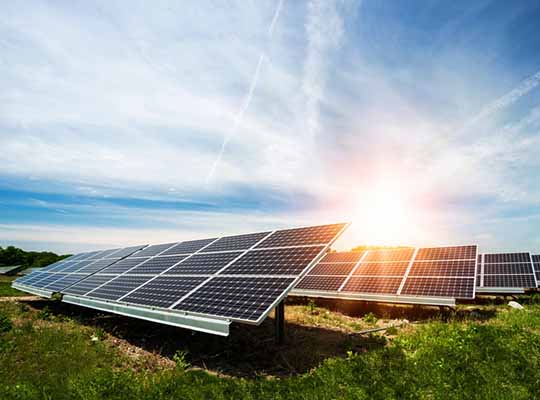Solar power is increasingly being adopted by industries and a number of businesses are shifting to solar power systems. Studies show that commercial adoption of solar is the latest trend. “Going Green” is a valid and noble reason for enterprises adopting solar, but it is the business imperatives which are really driving the adoption of solar.
Reducing and finally removing fossil fuel dependency makes commercial sense. The earth’s reserves of oil and coal are fast depleting making them dearer every year. Solar, on the other hand, with its infinite possibilities, is prompting better ROI. The cost of systems – solar panels, storage devices etc. are decreasing dramatically and coupled with tax incentives, that many countries offer, solar is fast becoming a viable choice.
As India grows and develops, it will see accelerated power demand which will push the country’s share of global energy demand to 11% by 2040 from 5% in 2016. It is important to note that, apart from augmenting generation capacity, only renewable energy has the potential to meet India’s burgeoning power demand.
Off-grid

Grid-tied or on-grid systems uses the grid as a solar battery by feeding access power to the grid. An off-grid solar systems work independently of the electricity grid. Off-grid presents a huge opportunity for renewable energy solutions, in particular solar home systems, and decentralized renewable energy systems.
Off-grid solutions have batteries that store the electricity generated using solar power. The panels store power, generated during the day, and use it at night. Self-sustaining, these systems, can provide power for areas where the power grid is not available. Off-grid solar system works with a battery bank to store all the electricity that has been generated and supplies electricity when needed. Batteries get charged continuously irrespective of the consumption with the solar energy that is being produced.
Rural and semi-urban areas, places which experiences very frequent electricity shutdowns can all benefit from off-grid solar systems. Off-grid solar systems can provide an economical and viable long-term backup solution to overcome the problems.
Why Off-grid
Why off-grid? Because, it has the potential to drive the adoption of solar power. We have already spoken about how rural and semi-urban areas can benefit from off-grid solar. The other areas/ applications where off-grid can contribute is with the Defence Forces. Known to be present in inhospitable and uninhabited areas where power grids are not available, off-grid solar can easily support the country’s defence forces. Solar energy is important for the defence forces as it is economical as well as self-sufficient. It helps reduce their dependence on conventional fuel which not only has to be transported to difficult-to-reach places with inhospitable terrain but also needs a large storage area – not to mention its hazardous nature.

Another area where off-grid solar can make significant contribution is with Electric Vehicle Charging Stations. With EVs making a mark and an increasing number being sold, Charging Stations will play a crucial role. However, fulfilling the charging requirements of millions of electrical vehicles from the grid would overload the network and introduce substantial burden on the power sector. Batteries supplied by low-carbon electricity sources, like solar, have the potential to significantly decrease the carbon dioxide emissions produced by the transportation sector. This is where, Electric Charging Stations, powered by solar power will make a substantial difference.
Another point in favour of off-grid is the rapidly falling cost of batteries and other storage systems. Once prohibitively priced, today the price of battery energy storage is also declining—with a 76% drop in US prices since 2012. The process is falling because of advancement in cell technology and partly because of economies of scale as the world, especially the transport sector, is adopting solar in a big way. With storage becoming cheaper, off-grid solar has the best possible chance to evangelize the use of solar energy.
Off-grid is the future
From economic development to improved health, renewable energy can help transform life across rural and urban areas. In remote communities, that lack basic facilities as a result of no/irregular power, off-grid solar can deliver energy which will enable access to clean water, light, cooking which is void of harmful effects of burning coal or wood.
Countries, enterprises and communities are increasingly looking at off-grid solar to help them surmount their energy problems. The potential is endless as there are stand-alone, off-grid products like solar roofs etc. What is clearly needed is focused off-grid capability development, coupled with the necessary policies and tax incentives to encourage private players’ participation. Off-grid is clearly the future.











